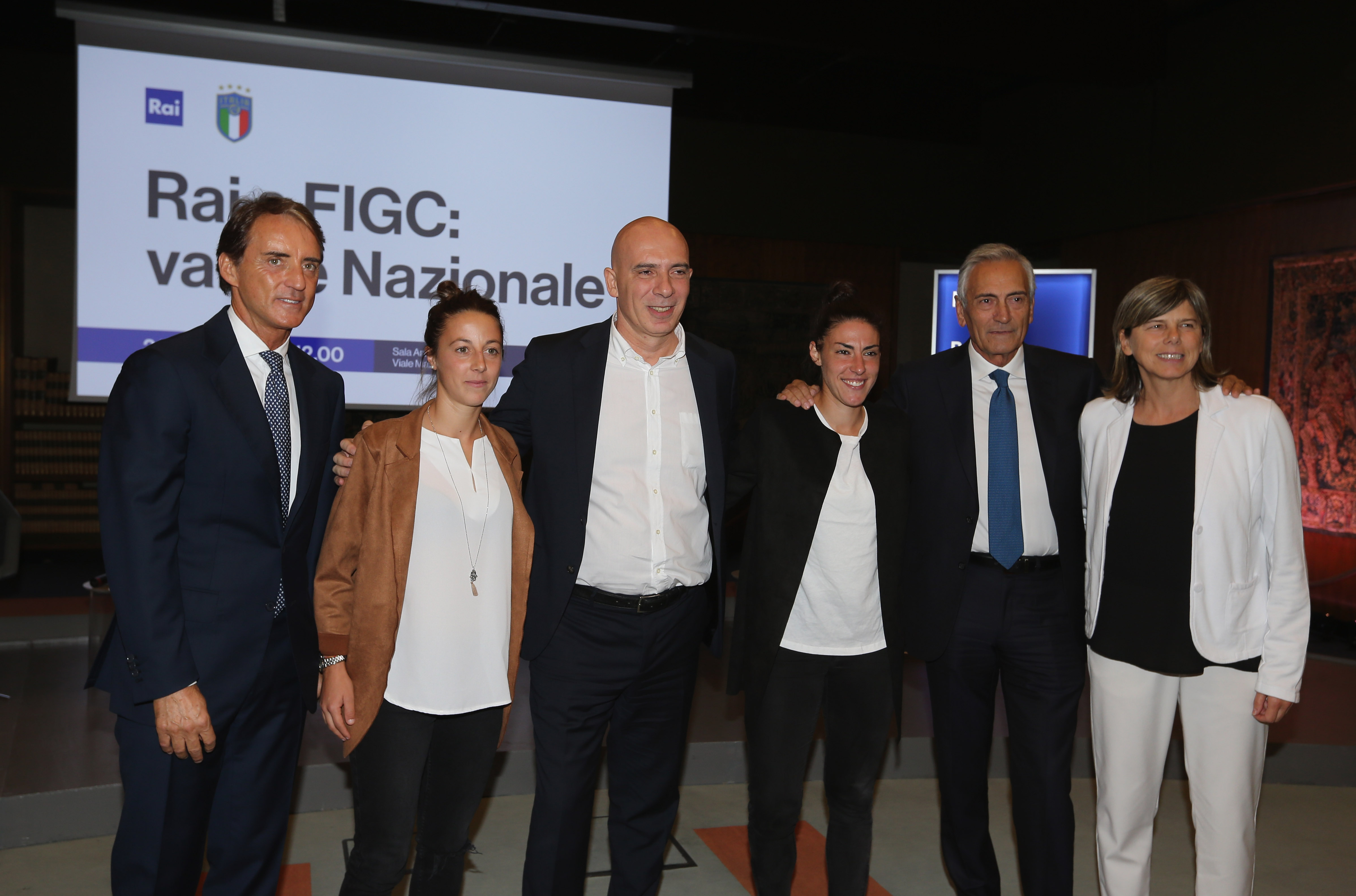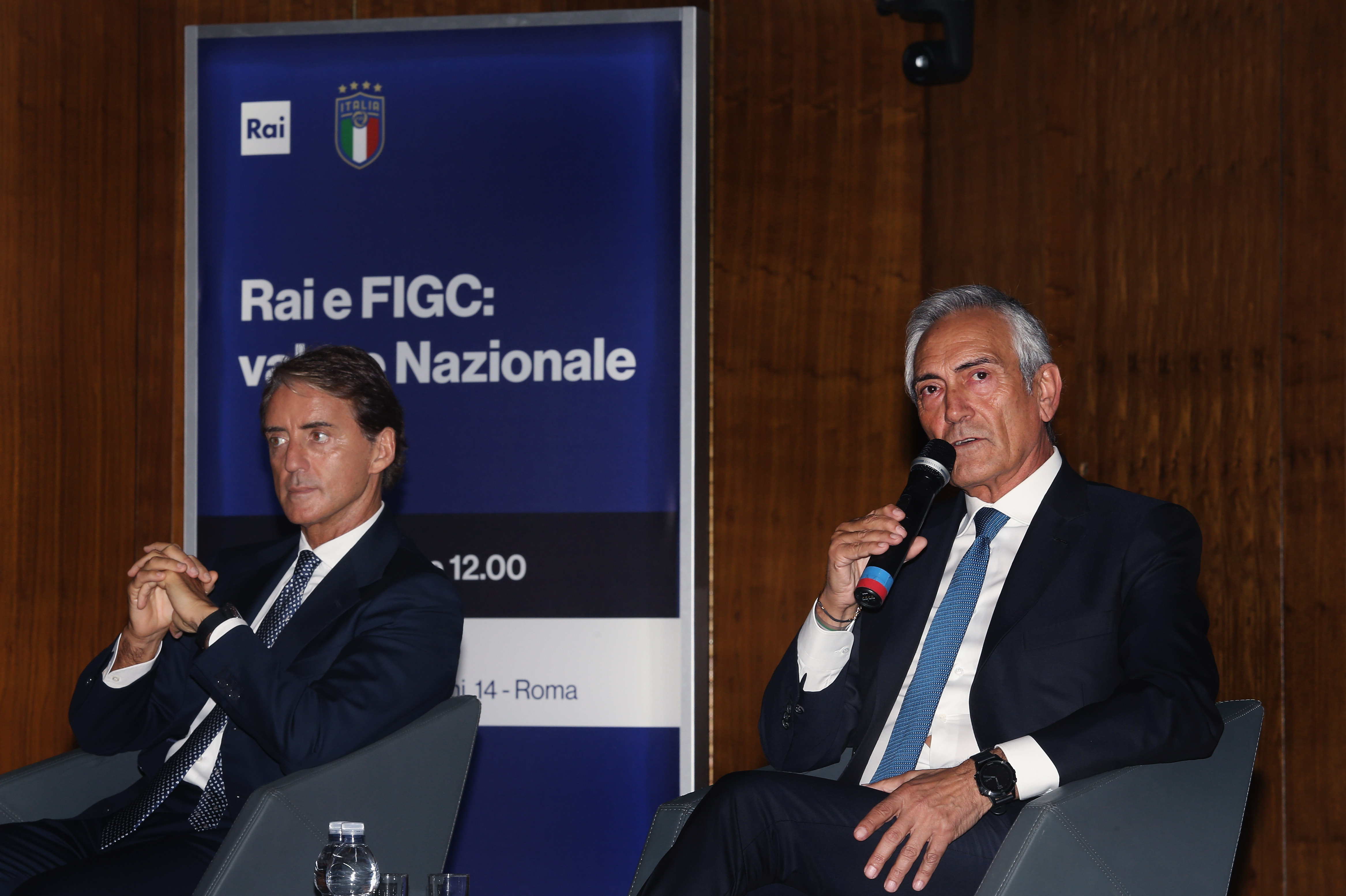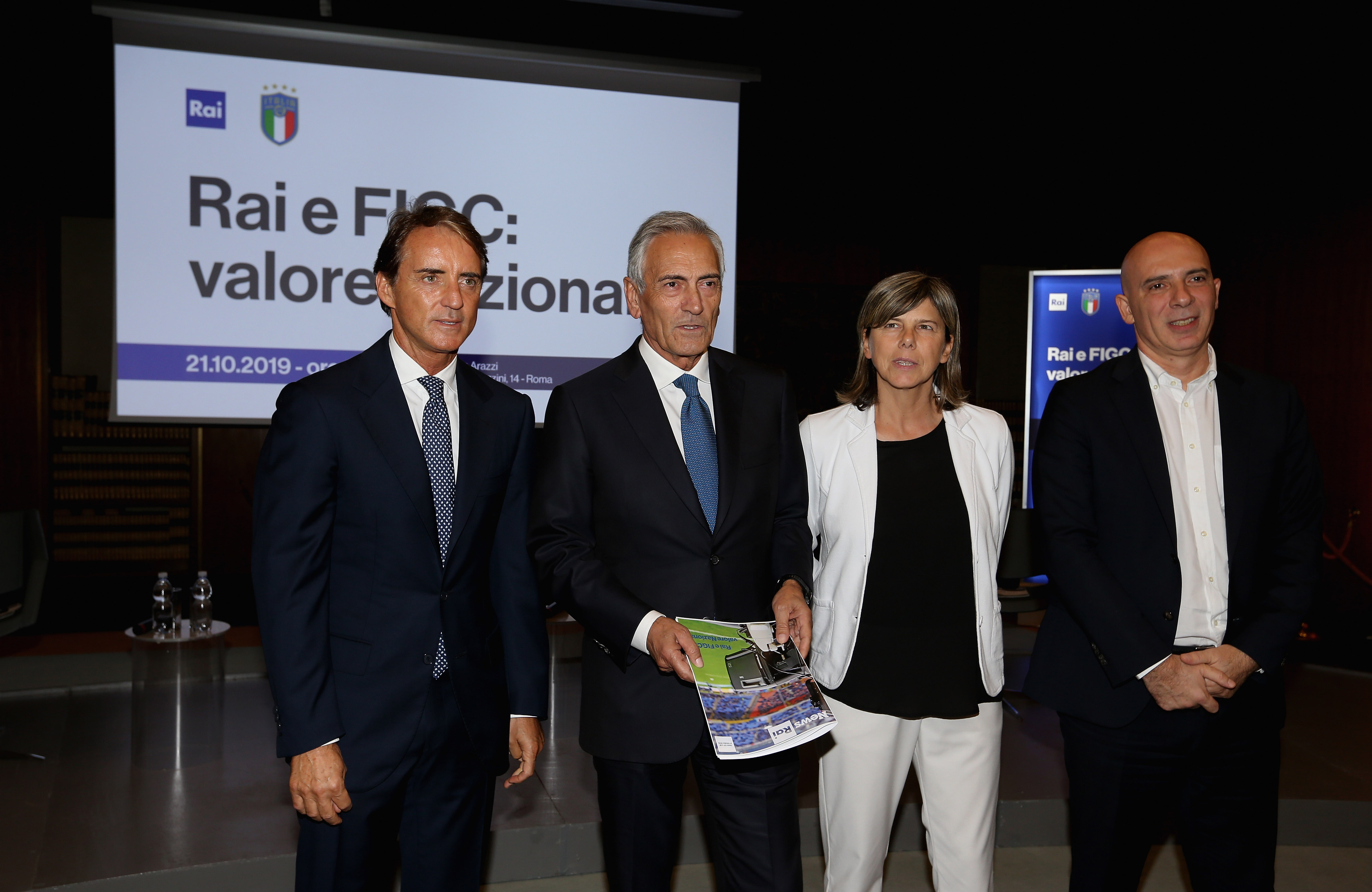
The story continues: FIGC and Rai to continue as partners until the 2022 Qatar World Cup
President Gravina: “We represent an important duo which has been able to narrate the history, the periods of changes, even the disappointments of our country, but always with the strength of enthusiasm.”Monday, October 21, 2019

91 years together. The partnership between the FIGC and Rai has just been renewed and it will continue until 2022, the year of the World Cup in Qatar. In addition to the both the men’s and women’s senior National Teams, all the Azzurri teams will be broadcast, from the Under-21 Team to the youth squads.
The story began in 1928 with a certain match, Italy vs. Hungary. It was a part of the International Cup, roughly equivalent to the modern-day European Championship. The game was played in Flaminio in Rome and it was broadcast on radio by the Ente Italiano per le Audizioni Radiofoniche (EIAR) with the voice of Giuseppe Sabelli Fioretti providing the commentary. And this radio relationship has continued right up to 15 October this year, as Italy faced Liechtenstein in a match for European qualification. The broadcast was listened to by six million fans.
It’s a connection that is based upon a shared commitment and upon the shared belief in the values of education, respect, and inclusion which are typical of the Public Service and of the FIGC. Throughout all these years, Rai has brought 20 editions of the World Cup, 15 editions of the European Championship, all the Olympic matches and dozens and dozens of friendly matches to Italian homes.

“Rai and FIGC: National Value” was the title of the press conference which took place today in the Theatre of Tapestries in viale Mazzini, a choice which perfectly unites the principles which started this incredible adventure that the passing of years has been unable to halt, despite the numerous changes in the world of football. One thing has not changed, one thing still unites and reinforces us, and it is the love for the blue shirt.
In the presence of the FIGC President Gabriele Gravina, General Secretary Marco Brunelli, men’s National Team Head Coach Roberto Mancini, women’s National Team Head Coach Milena Bertolini and of the two footballers Linda Tucceri Cimini and Laura Fusetti, Rai CEO Fabrizio Salini spoke of a “lasting bond.” He said: “In these 90 years the story of the National Team has been linked with that of Rai through the values of loyalty and inclusion. The blue shirt of the National Team is also the shirt of Rai. We are really pleased and proud to have brought the women’s National Team to Rai 1, it was a natural and obligatory choice. This choice is the result of our reasoning: the women’s National Team deserved this stage. We have defeated the prejudices.”

Over these 91 years, Rai has united Italians, families, it’s lived the emotions, it’s narrated the difficult moments, and above all it has brought the blue shirt to homes. President Gravina underlined: “Rai is the home of the national teams. Today we are in our home. I must thank Rai and its staff, who follow us on every trip. We represent an important duo which has been able to been able to narrate the history, the periods of changes, even the disappointments of our country, but always with the strength of enthusiasm. And the numbers show it.”
Introduced in 1986, the Auditel acts as the social barometer. Italy vs. Argentina, played on Tuesday 3 July 1990 at Stadio San Paolo in Napoli is the most-viewed football match on Italian television of all time. Rai1 had 27.5 million fans glued to the screen with a monster share of 87.2% of all viewers: values never reached again in the history of sport and television. Of course, World Cups are of the greatest interest to fans of football and of the Azzurri. The World Cup held in Italy, with five of its matches among the top ten most viewed, remains the nation’s favourite tournament from the point of television figures. In addition to those five matches at Italia 90’, there are also three matches from USA 94’ (Italy vs. Mexico in the knockout round, the Italy vs. Bulgaria semi-final and the final, Italy vs. Brazil, which went all the way to penalties) and the semi-finals and final of Germany 2006. These matches, unlike the others mentioned, were not Rai exclusives, yet almost 24 million viewers tuned into watch the Rai1 broadcast.

“There’s an enormous following,” continued Gravina. “When it comes to our sport, there’s not just a sporting aspect, there’s also a need to highlight the social dimension. This has been done successfully: we’ve been able to share new stories while looking at the social side of things. I need to thank Rai for how much it’s invested in women’s football, a phenomenon that has come about in no time at all.”
The women’s World Cup in France had an unexpected following. And Rai was rewarded for its support. The quarter-final match between Italy and the Netherlands on 29 June saw a record amount of viewers for an afternoon game: 5,223,000 (a 37.90% share), in fact, and a peak of 5,360,000 (a 40.26% share). “It was a fantastic event,” said Milena Bertolini. “However, it needs to be seen as just the start. We need to carry on from here so the legacy of this World Cup doesn’t go to waste. It’s important to keep planning, investing but also revitalising. For us, being on Rai was extraordinary: I believe that the whole of Italy opened itself up to our world. The figures we seen are final in terms of our growth process and launching women’s football.”
The Head Coach of the men’s team, Roberto Mancini, also had a few words to say: “Rai was very much part of my youth and I believe that this pairing is perfect. I’m very happy, I hope the agreement continues for many years. It’s pleasing that the Italian punlic and fans are really taking to the team, we’re improving a lot. We want as many people to tune in as the amount that followed Italy vs. Argentina in 1990, when I was on the bench. That’d mean that we’d done really well.”



